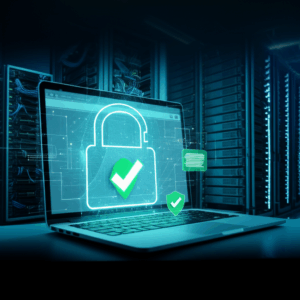- Understanding the Importance of Website Security
- The Role of SSL Certificates in Website Security
- Choosing the Right SSL Certificate
- Hosting Protection: Your First Line of Defense
- Key Features of Secure Hosting
- Website Security Best Practices Beyond SSL and Hosting
- Investing in Website Security: A Smart Business Decision
Website Security: An Essential SSL & Hosting Protection Guide
Website security is paramount in today’s digital landscape. With cyber threats constantly evolving, protecting your website and user data is no longer a luxury, but a necessity. This comprehensive guide will explore the crucial aspects of website security, focusing on SSL certificates and robust hosting protection, providing you with the knowledge and tools to fortify your online presence.
Understanding the Importance of Website Security

In an increasingly interconnected world, websites are vulnerable to a plethora of threats, ranging from malware infections and data breaches to DDoS attacks and phishing scams. These attacks can have devastating consequences, including financial losses, reputational damage, and legal liabilities. A secure website not only protects your business but also builds trust with your visitors, encouraging them to engage and transact with confidence.
The Role of SSL Certificates in Website Security
SSL (Secure Sockets Layer), now technically TLS (Transport Layer Security), certificates are the bedrock of online security. They encrypt the communication between a user’s browser and your website server, preventing sensitive information like passwords, credit card details, and personal data from being intercepted by malicious actors. Visually, an SSL certificate is represented by the padlock icon in the browser’s address bar and the “https” prefix in the URL, signaling to users that the website is secure.
Choosing the Right SSL Certificate
Several types of SSL certificates cater to different needs and budgets:
Single Domain SSL: Secures one specific domain name.
Wildcard SSL: Secures a primary domain and all its subdomains (e.g., blog.example.com, shop.example.com).
Multi-Domain SSL (SAN): Secures multiple distinct domain names under a single certificate.
Extended Validation (EV) SSL: Offers the highest level of assurance, displaying the company’s name in the address bar, further boosting user trust.
Choosing the right SSL certificate depends on the complexity of your website and the level of security required. For e-commerce websites and those handling sensitive user data, an EV SSL certificate is highly recommended.
Hosting Protection: Your First Line of Defense
While SSL certificates encrypt data in transit, robust hosting protection safeguards your website at the server level, mitigating various threats before they can even reach your website. A secure hosting environment is crucial for preventing malware infections, blocking malicious traffic, and ensuring website availability.
Key Features of Secure Hosting
A reliable hosting provider should offer the following security features:
Firewall Protection: Filters incoming traffic, blocking malicious requests and preventing unauthorized access to your server.
Malware Scanning and Removal: Regularly scans your website files for malware and provides tools for automatic removal.
Intrusion Detection and Prevention Systems (IDPS): Monitors server activity for suspicious behavior and automatically blocks potential threats.
DDoS Protection: Mitigates Distributed Denial of Service attacks, which aim to overwhelm your server with traffic and render your website inaccessible.
Regular Backups: Ensures that you can quickly restore your website in case of data loss due to attacks or technical issues.
Website Security Best Practices Beyond SSL and Hosting
Beyond SSL and hosting, implementing these best practices will further enhance your website security:
Strong Passwords and Two-Factor Authentication: Use strong, unique passwords for all website accounts and enable two-factor authentication for an extra layer of security.
Regular Software Updates: Keep your website software, including content management systems (CMS), plugins, and themes, up-to-date to patch security vulnerabilities.
Web Application Firewall (WAF): A WAF filters malicious traffic specifically targeting web applications, providing an additional layer of protection against common web attacks.
Security Audits: Regularly conduct security audits to identify potential vulnerabilities and weaknesses in your website’s security posture.
Educate Your Team: Train your website administrators and content contributors on security best practices to prevent accidental breaches or vulnerabilities.
Investing in Website Security: A Smart Business Decision
Investing in robust website security is not an expense, but an investment in the long-term health and success of your online presence. By implementing SSL certificates, choosing a secure hosting provider, and following security best practices, you can protect your website, your user data, and your reputation from the ever-present threat of cyberattacks. In the digital age, website security is not just an option; it’s a fundamental requirement for any business operating online.











Leave a Reply